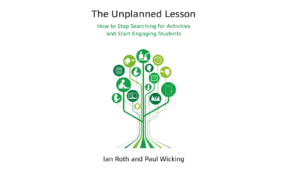A Journey through the Language of Our Business
Business language, like all language, evolves over time and reflects and shapes its environment. Having identified various strains of business language, I decided to look at some of the language used within our own ELT industry. Does it fit any of these definable styles and if so, what are the implications for us, its practitioners?
Military
When I worked for Unilever in the late 1970s, the vocabulary structures and attitudes were very much adopted from the military. I was interviewed by a Personnel Officer and I ended up in the Information Division (Education). It was genteel but the then emerging discipline of marketing went on to adopt the more aggressive military terms, thus you had “campaigns” to “gain” or “defend” your market against “rival” companies. Large organizations structured on the military were characterized by steep and rigid hierarchies, within which there were clear roles. A key quality was loyalty and if you could provide this you were more or less assured a job for life, plus pensions and benefits similar to those found in the public sector.
Sport
In the 1980s, as Thatcher and Reagan’s meritocracy supposedly took over from a rigid class system, US business vocabulary made a minor switch into the language of sport. Much sport vocabulary is based on military vocabulary but the pressure was now on the individual to demonstrate they were (literally) fit for purpose at any given time. Even the “rookies” had to “hit the ground running”, despite the “uneven playing fields,” where others were “moving the goalposts,” etc., etc. These were the days of “hire and fire.” Shareholders were impatient for short term results or they would switch their allegiances and sell their stock. The model still prevails in the world of sport (look at the quick turnover of football coaches). Key qualities were the speed of results, which showed you were fit for the job currently in hand.
The language of science and nature
This was (quite literally) a natural reaction to the perceived over-planning of large corporations in the post hippy 1970s. Thus instead of “teams”, you had a “nucleus,” and products, organizations and careers developed “organically.” Now that large corporations have discovered the selling power of environmental protection, the language used seems less natural, with much talk of “greenwashing” (a recent coinage) and “sustainability” (one definition of this word is “defensible,” which is military).
From consensus to engineering
The business philosopher Charles Handy famously bemoaned the changeover from the language of committees and politics (even the military “competition” originates from Latin “petere” = “to strive, seek, fall upon, rush at, attack” + “com” = together. We also have “union”, “United”(in names), “works council”, the “board” and the newer “onboarding”); to the “language of engineering” (“manpower,” “human resources,” “leverage” etc.) where “organizations are machines with human parts,” and people are tools. Key quality: keep functioning, otherwise you can be replaced.
The language of euphemism
“Outsource”, “lay off,” “part ways.” This is obfuscation to distance you from the reality of the action. Unpleasant actions sound reasonable and are thus less difficult to carry out. There is still an emphasis on process (“benchmark,” “streamline”). Beware the company that expresses itself through euphemism. It may have a problem accepting reality. Key quality: “versatility”.
The language of IT
As our lives have been transformed by digital advances, so has the language used at work.
“Technobabble” or “geek speak” is sometimes witty and ironic (“abandonware,” “clickbait,” “backwardly compatible”) and sometimes intentionally obscure and exclusive (NSFW = (website) not safe/suitable for work, “unicorn” = a rare sighting of a start up company destined for greater things, “white hat” = a “good” hacker, who checks your system). Also: “interface”, “blog.” Key quality: highly skilled and individualistic.
The language of humanism and empathy
This is visceral, involving parts of the body (“carbon footprint,” “brainstorming”), physical movements (“lean in”, “reach out,” “move the needle”), higher skills (“blue sky thinking,” “reimagine”) and even emotions (“passion”, “trust”). “Our greatest assets are our people” say Warren Buffet and Richard Branson. “Do what you love”, says Steve Jobs. Title inflation is one reward for lack of any real advancement. Mackinsey thus has “master experts” and the person in the Apple shop is a “genius.” In return the employees are expected to be “passionate” enough to “go the extra mile” or two. “Passion” and “mission” could also be classified as religious language. “Mission” was used by the Jesuits and crusaders and is not unconnected with the language of the military.
The language of empowerment
This new language of euphemism is particularly popular in the gig economy, a field of business where a key element is a reversal in responsibility. Everything (to quote the CEO of the supermarket chain Tesco) is “choiceful.” The takeaway delivery company Deliveroo has produced a six page document for managers to help them avoid referring to their couriers as employees. Thus couriers are “independent suppliers,” and they work according to their own “availability,” not to shifts. The couriers are suing the company for holiday pay and sick leave. The company founder is happy with his version of events, claiming “I feel that we’re providing high-paying flexible work to a large number of people.”
The language of ELT
And so to our business. I examined the websites of IATEFL and TESOL and looked at those of Pearson, Macmillan, The British Council and National Geographic/Cengage. I also looked inside course books but these are aimed at learners of English and kept famously neutral. For the most part the two largest teaching organizations used similarly neutral language, Macmillan remained consistently humanistic, the British Council, Pearson and National Geographic/Cengage mixed the language of humanism and empathy with other styles, perhaps in keeping with the wide spread of their business fields.
IATEFL
This had the most neutral language. Information was given simply in the form of lists. There were traces of military language in the IATEFL Code Of Good Governance (strategy/strategic x 6) alongside the political language (delegate, delegated x 4; policies etc.)
TESOL
This used slightly more political language than IATEFL. It is a “collaborative” association providing feedback to US “policy” makers and helping you “advocate.”
Macmillan
Macmillan used firmly humanistic language and linked it closely to teachers and teaching. This we had “teachers at the heart” and “#loveteaching.”
The British Council
This used language which was political (support, connect, collaborative, bring together) or humanistic (build trust, encourage, enhance, understanding, friendly) to lay down its “mission” (political). There were also elements of engineering language (equip, build, success – the last of which is a process), including a blog series called “Success Stories.” The language of engineering was also linked closely to teachers. Thus: “Thousands of experienced ELT teachers from over 50 countries have helped us calibrate the Global Scale of English.” Teachers are exhorted to use it to “audit your curriculum.” Elsewhere it’s an “ecosystem.” (the language of the nature and science).
Pearson
Pearson opted for childish simplicity, with exclamations, direct questions, simple verbs (help x 2) and a “vision” (humanistic). There were traces of the new euphemism of role reversals, as the reader is approached with ready offers of help. Thank you, Pearson. May we buy your products?
Hello World!
Pearson English has a simple vision: to help everyone in the world understand each other. Whether you’re learning or teaching English at school, at work or as a hobby – we‘re here to help you succeed.
How can we improve your English?
National Geographic/Cengage
This used a mixture of styles. Education is “one of the great transformative forces (military) of this century. Among our goals (sports) is to help learners and teachers to achieve personal success and be better citizens (political) of the 21st century. We want English language teachers and their students to experience the excitement and joy of learning and to bring their classroom to life (humanism/empathy). Our mission (political) is to inspire (humanistic) students to learn and acquire the skills they need to be successful in their careers or educational experiences (humanistic), as well as to become lifelong caretakers (humanistic?) of the planet” (nature and science). The “About” page has a couple of short films, including the highly humanistic “We believe,” which within 2 minutes, 26 seconds manages to include the following: “we think we know.. we think we understand .. elation …It doesn’t matter that I can’t feel my fingers, it matters that someone else can feel that by looking.”
Conclusion
This is, of course, a very short introduction to the language used in business. Some use of specialist terms is inevitable in every profession and some terms are quite simply hard to allocate or even define (for example I classified “mission” as political language, not humanistic, though strictly speaking it is religious. “Caretaker” is a portmanteau word which has changed its meaning and in this case, has changed it back again. My technical students are required to attend “Human Factor” seminars and this is likewise a portmanteau term of humanistic + engineering, to express the human error that is often overlooked in technology).
As language teachers, however, we are sensitive to register, and it is important to remember that most large organizations are careful to cultivate an online presence, which will reflect their message. Sometimes there are reasons for inconsistencies (volunteers writing different pages independent of each other, different audiences, different business). It is however, worth examining the connotations of the language we use to describe our profession and to remind ourselves of any effect this language may have on our profession and on us, its practitioners.
References
http://www.etymonline.com/index.php?term=compete
Charles Handy, Beyond Certainty: The Changing World of Organizations (1995; various publishers)
https://www.theguardian.com/business/2017/apr/05/deliveroo-couriers-employees-managers
http://www.tesol.org/about-tesol/tesol-membership/membership-benefits
https://www.britishcouncil.org/organisation
https://www.pearsonelt.com
http://www.macmillanenglish.com/about-us/





2 Responses
Elsiye
Excellent article, very much to the point as well as revealing. It is a fascinating topic and the overview is impressive and elegant.
12/06/2017
Helen Waldron
Thanks, Elsiye. I'm so glad you enjoyed it.
13/06/2017